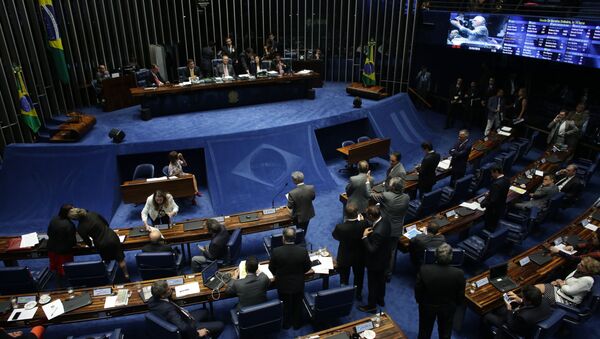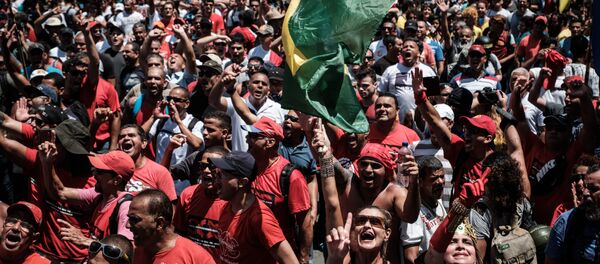The fiscal reform, slammed by the United Nations as a socially regressive and inappropriate slashing of healthcare, education and social security funding, was approved by the lower house of Congress in late October by a margin of 359 votes to 116. The house later approved additional changes to the text before the bill was submitted to the Senate. The Senate then approved the spending cap in a first-round vote on November 29 by a margin of 61 to 14.
Earlier in December, Brazil's Supreme Court ordered the removal of Senate head Renan Calheiros from office over embezzlement charges in a move that jeopardized the passing of the bill as Calheiros would be replaced by vice head Jorge Viana from the Workers Party who would likely freeze the vote. Temer then moved swiftly to mediate between the judiciary and legislative authorities, eventually sealing a deal keeping the Senate president on his post.
On Thursday, the embattled Calheiros confirmed that the vote would be held on December 13. A day after, Temer expressed confidence that the austerity bill would be approved.
Later, Finance Minister Henrique Meirelles said the Brazilian government was considering further measures to stimulate the country's flagging economy after the reform is enacted.
The fiscal reform has sparked widespread discontent among Brazilians who took to the streets to protest in late November and again in December. Demonstrators burned cars and attacked government buildings after the Senate's first round of voting. Police deployed teargas to disperse thousands of people in capital Brasilia. In December, public servants protested the reforms in Rio de Janeiro and clashed with police.
Brazil's economy has been facing growing problems with a shrinking GDP, a rising budget deficit and increasing unemployment. Brazil's year-on-year GDP growth rate fell to —5.4 percent in the first quarter of 2016 after hitting —5.9 percent in late 2015, which is the worst figure in decades.



